|
About
FOIA ~ FOIA
Resources ~ About
FOIA Day ~ FOIA
Day Conference ~
International
FOIA ~ FOIA
News
|
|
EPIC makes frequent use of the
Freedom of Information Act
to shed light on government activities.
Here are several examples of FOIA requests that EPIC has
filed and/or litigated.
|
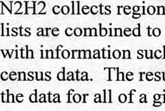
|
Electronic Privacy
Information Center Request to Hillsborough County
Florida School District.
This request was motivated by
news reports of a company that was selling
information on schoolchildren's Internet browsing
habits without parental knowledge or consent.
Employing both the FOIA and the Florida Open
Records Acts, EPIC and other public interest groups
focused public attention on the practice. The
company no longer sells sells the
information.
|
|
|
Electronic Privacy
Information Center v. Department of Justice,
C.A. No. 00-1849 (D.D.C.).
On July 11, 2000, the
existence of an FBI Internet monitoring system
called "Carnivore" was widely reported. EPIC filed
a Freedom of Information Act (FOIA) request seeking
the public release of all FBI records concerning
Carnivore, including the source code, other
technical details, and legal analyses addressing
the potential privacy implications of the
technology. This document shows that Carnivore can
capture all network traffic, rather than just the
information specific to a particular
suspect.
|
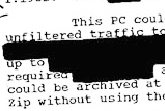
|
|
|
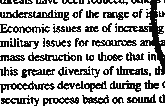
|
Electronic Privacy
Information Center v. National Security
Council,
C.A. No. 95-0461 (D.D.C).
This document, Presidential
Decision Directive 29, established the secretive
Security Policy Board. The Board was established in
September 1994 and charged with developing
government-wide policy on information
security.
|
|
|
Electronic Privacy
Information Center v. FBI,
C.A. No. 94-1720 (D.D.C.).
This request sought the
release of two FBI internal surveys cited by
Director Louis Freeh in support of wiretap
legislation enacted by the 103d Congress. The case
was filed several days after the legislation was
introduced and highlighted the fact that the Bureau
never documented the need for enhanced wiretapping
capabilities. Here is a heavily censored version of
the FBI survey obtained by EPIC.
|

|
|
|
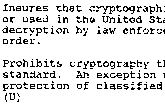
|
Computer Professionals for
Social Responsibility v. National Security
Agency,
C.A. No. 93-1074 (D.D.C.)
An FBI report titled "Impact
of Emerging Telecommunications Technologies on Law
Enforcement." This excerpt calls for a national
policy prohibiting cryptography that does not
ensure real-time access to law enforcement. The
release of this document played a significant role
in the public debate over the now-defunct "Clipper
Chip" encryption initiative.
|
|
|
|
Computer Professionals for
Social Responsibility v. FBI,
C.A. No. 92-2117 (D.D.C.)
This 1991 high-level White
House memorandum discusses digital telephony and
the Clipper Chip. Digital telephony standards
(adopted by Congress in 1994) require all telephone
systems to be wiretap-compatible. The Clipper Chip
was an encryption device that enabled the
government to decode users' messages. This
memorandum illustrates President G.H.W. Bush's
support for the two technologies and the scheme to
implement them.
|
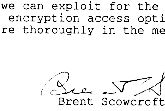
|
|
